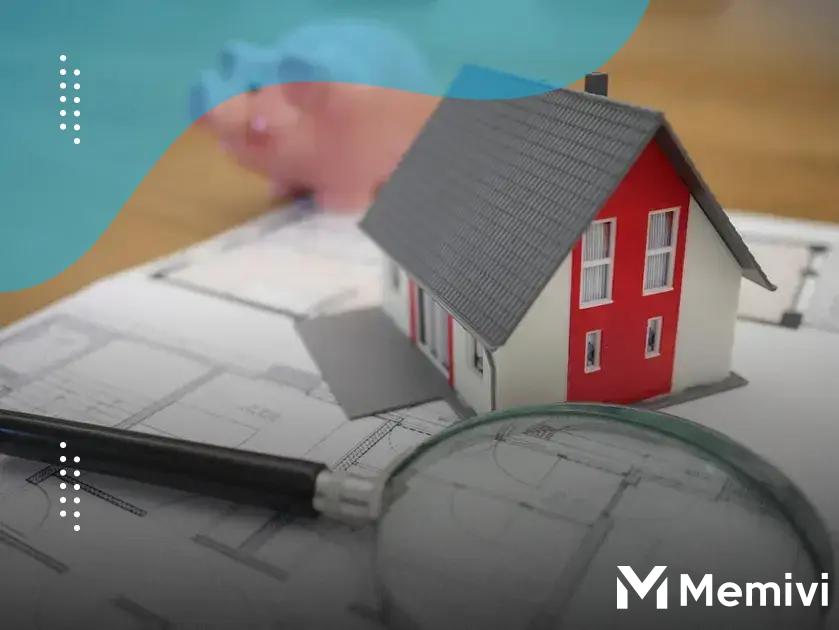
When it comes to Canadian mortgage types, understanding the different options available is essential for making informed decisions. Whether you’re a first-time homebuyer or looking to invest in the property market, knowing the ins and outs of fixed-rate, variable-rate, and open mortgages can greatly impact your financial future. By exploring these options, you can select the mortgage that’s best tailored to your needs, ensuring the affordability and flexibility you desire in your real estate journey.
Understanding Fixed-Rate Mortgages
Fixed-rate mortgages in Canada offer a repayment option where the interest rate remains constant throughout the life of the loan. This structure can be advantageous for those who prefer to budget with certainty, as it eliminates any surprises from fluctuating interest rates.
The primary benefits of a fixed-rate mortgage include predictability of monthly payments and protection from inflationary changes. Borrowers can plan their finances knowing that each monthly installment will be identical to the last, which can be especially reassuring during economic uncertainty.
While a fixed-rate mortgage is less flexible than its variable counterpart, it shields the borrower from unexpected rate hikes. This consistent rate makes it a popular choice among first-time homebuyers who seek stability.
Typically, fixed-rate terms in Canada are available from one to ten years. Once the term ends, borrowers may have the option to renew at the then-prevailing rates. Understanding the nuances is crucial for aligning a fixed-rate mortgage with long-term financial goals.
Choosing between short and long terms requires a balance between lower initial rates seen in shorter terms and the protection offered by locking in a longer-term rate against potential future increases. Borrowers need to weigh these factors while considering their unique financial situation and market trends.
Exploring Variable-Rate Mortgages

Variable-rate mortgages, also known as adjustable-rate mortgages (ARMs), are a popular choice for many homebuyers. These mortgages come with interest rates that can fluctuate over time, usually in relation to an index or benchmark interest rate, which can lead to lower initial rates compared to fixed-rate mortgages.
The interest rate and monthly payments with a variable-rate mortgage can change at specified intervals. Borrowers need to understand how often these changes can occur and what factors will affect the rate. It’s essential to read the terms of any variable-rate mortgage carefully.
Pros and Cons: One of the key advantages of a variable-rate mortgage is the potential for lower payments if interest rates fall. However, borrowers must be prepared for the possibility that rates—and their monthly payments—could also rise.
Rate Cap: Many variable-rate mortgages include features such as rate caps, which limit how much the interest rate can increase at one time or over the life of the loan, providing some level of protection for the borrower.
Choosing a variable-rate mortgage could be ideal for homeowners who plan to stay in their home for a short period or who expect interest rates to decline. For those considering a variable-rate mortgage, it’s crucial to evaluate your financial situation and risk tolerance.
Advantages of Open Mortgages
Open mortgages offer a flexible repayment option for borrowers in Canada. One of the primary benefits is the ability to make extra payments or pay off the mortgage entirely without incurring penalties. This feature is particularly advantageous for those who expect an increase in their income or anticipate receiving a lump sum of money.
Unlike fixed-rate or variable-rate mortgages, open mortgages allow homeowners to manage their loan according to their financial situation. For example, if you suddenly come into an inheritance or receive a substantial bonus, you can apply that money directly to your mortgage, reducing the principal balance swiftly.
Additionally, these mortgages often come with shorter terms, providing more freedom to renegotiate or refinance at the end of the period. Although open mortgages typically come with higher interest rates compared to closed ones, the freedom they provide can result in long-term savings. Homeowners who value flexibility and anticipate changes in their financial circumstances will find open mortgages compelling. This kind of mortgage is suitable for individuals who might sell their homes in a short period or those who might experience fluctuating income levels.
Choosing the Right Mortgage for You
When selecting a mortgage in Canada, several types are available that cater to different needs and financial situations. Understanding these options is essential for finding the best fit for your requirements. The primary categories include fixed-rate, variable-rate, and open mortgages.
Fixed-rate mortgages offer stability with consistent payments over the loan term, making them ideal for budgeting. On the other hand, variable-rate mortgages fluctuate with the market, potentially offering lower initial rates. However, they come with the risk of increased payments if interest rates rise.
Open mortgages provide flexibility with the option to pay off your loan early without penalties. They tend to have higher interest rates, yet the advantage is in the ability to save on interest costs if you anticipate receiving a substantial sum of money.
Choosing the right mortgage means evaluating your financial goals and how much risk you can manage. Think about long-term plans, income stability, and whether you prefer predictable payments versus potential savings with fluctuating rates. By doing so, you can decide on the mortgage type that will benefit you most.



 Household Spending Surge: How Equity Markets Could React Fast <p class='sec-title' style='line-height: normal; font-weight: normal;font-size: 16px !important; text-align: left;margin-top: 8px;margin-bottom: 0px !important;'> A sudden rise in consumer spending may reshape equity market trends. Discover how this shift impacts investors, stock sectors. </p>
Household Spending Surge: How Equity Markets Could React Fast <p class='sec-title' style='line-height: normal; font-weight: normal;font-size: 16px !important; text-align: left;margin-top: 8px;margin-bottom: 0px !important;'> A sudden rise in consumer spending may reshape equity market trends. Discover how this shift impacts investors, stock sectors. </p>  Hot Canadian Stocks to Watch in 2025: Discover Top Opportunities <p class='sec-title' style='line-height: normal; font-weight: normal;font-size: 16px !important; text-align: left;margin-top: 8px;margin-bottom: 0px !important;'> Tracking hot Canadian stocks is key if you’re aiming for steady growth and solid returns. </p>
Hot Canadian Stocks to Watch in 2025: Discover Top Opportunities <p class='sec-title' style='line-height: normal; font-weight: normal;font-size: 16px !important; text-align: left;margin-top: 8px;margin-bottom: 0px !important;'> Tracking hot Canadian stocks is key if you’re aiming for steady growth and solid returns. </p>  High-Speed Rail Canada: Connecting Cities with Innovation and Speed <p class='sec-title' style='line-height: normal; font-weight: normal;font-size: 16px !important; text-align: left;margin-top: 8px;margin-bottom: 0px !important;'> Get ready for a groundbreaking travel revolution — Canada’s high-speed rail promises to connect major cities faster, smarter, and more sustainably. </p>
High-Speed Rail Canada: Connecting Cities with Innovation and Speed <p class='sec-title' style='line-height: normal; font-weight: normal;font-size: 16px !important; text-align: left;margin-top: 8px;margin-bottom: 0px !important;'> Get ready for a groundbreaking travel revolution — Canada’s high-speed rail promises to connect major cities faster, smarter, and more sustainably. </p>